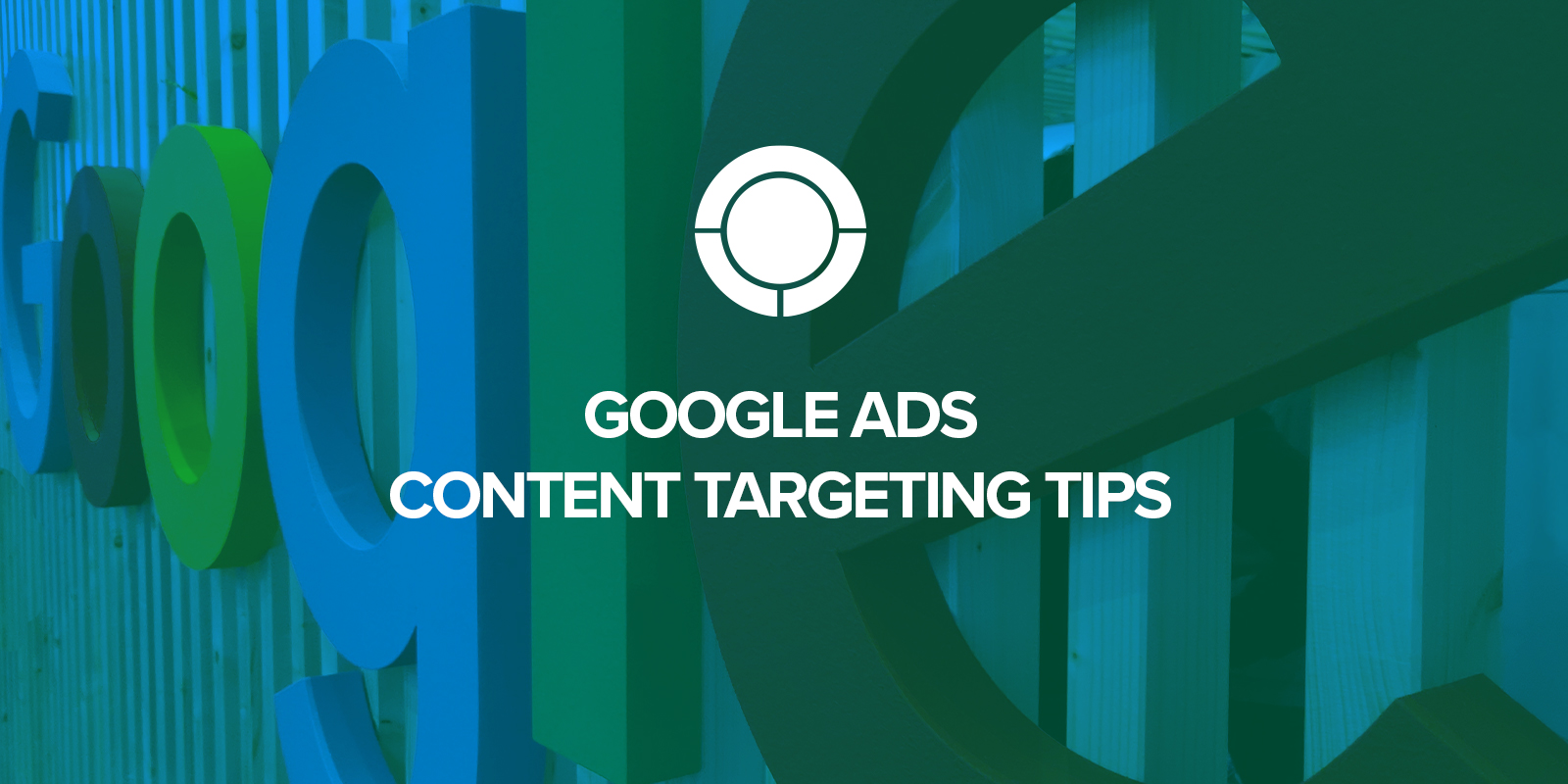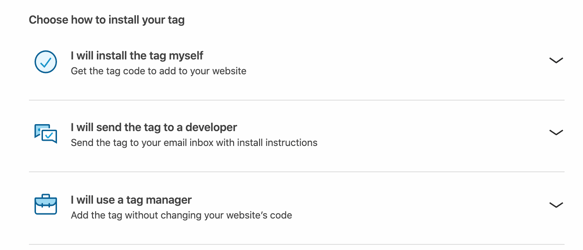Google Ads Content Targeting Tips
November 18, 2020

Welcome to the final post in our two-part blog series on Google Ads setup. Last week, we talked about Audience Targeting and the associated categories of demographics, affinity, in-market, custom intent, similar audiences, and remarketing.
This week, we’ll discuss the keyword targeting strategies for Google Ads as a way to get in front of people based on what they’re searching for.
We’ll also present some tips on aligning your Google Ads with your landing pages.
Content Keywords
TIP: Consider longtail search terms and not just individual keywords.
The idea is to focus on the intent of the searcher and then offer them a page to go to that aligns with their search intent.
If you have a specific kind of software, like ERP, you probably shouldn’t be just bidding for the word “ERP.” If you’re offering a demo of your ERP, then you can bid for the phrase ERP Demo, use language in the ad copy that reflects that you’re sending them to a demo page, and then fulfill that promise by sending them to your ERP demo page.
By doing this, you’re building symmetry between the query, your ad copy, and the landing page. This should help you achieve better conversion rates on your landing page. It should also help you get better click-through rates versus a competitor who didn’t consider that phrase alignment and was just advertising ERP generally and sending people to their home page (for example).
In our example above, “ERP Demo” may be a bit restrictive. Think about other possible ways you can differentiate, create ad symmetry, and add focus to your ads. Let’s say you sell an ERP for manufacturing. You should consider bidding on a phrase that relates to ERP for manufacturing, creating an ad that aligns with the query, and direct people to a page that highlights how your ERP works for manufacturing.

Bidding on longer-tail search queries also requires having an expert understanding of the Google match types. You can view the keyword match types descriptions in this chart.
Over the past year, Google has changed a lot of rules about these match types and broadened how you can be found for exact, phrase, broad match, and broad match modifier terms. They’ve started to expand the potential things you can be found for based on an expansion of “close variant,” “close meaning,” and “close intent.”
In a recent review of search term reports, I noticed that my “demo” ad group was being found for “trial” phrases and my “trial” ad group was being found for “demo” because Google deemed them “close intent.” I disagree with this take on it, but the machine decided they were close enough. This is why it’s important to keep as close of an eye as you can on your search terms report and why you need to be very thoughtful about your negative keywords as you build and run your campaign.
Free Bonus Material!
Setting Up Conversion Tracking for Digital Ads

Read another one of Ryan Nicholson's posts to learn how to set up proper conversion goals for your digital advertising campaigns.
TIP: Be mindful of keywords you don’t want to be found for.
The keyword that you buy may include searches you weren’t expecting. Negative keyword options can go a long way in avoiding putting your ads in front of searchers who were absolutely not looking for what you were trying to promote.
For instance, a common one we’ve seen in the past is a broad match for data storage. Bidding for broad match data storage is going to bring any search that has the words data OR storage in it. Somebody could type ‘data processing center’ and you could be found for it. You could be also found for ‘under the bed storage.’ As silly as this sounds, we’ve seen thousands of dollars of waste on broad match searches because people weren’t mindful of their search terms report or super diligent about their negative keywords.

Again, this is why it’s crucial to understand your match types.
TIP: Weed out the job searchers with negative keywords.
When setting your negative keywords, think about all the other subject types in your area that people could be searching for — the very things you don’t want to be found for. One of these categories is job-hunting searches.
Negative-out training, careers, jobs, and education, hiring, resume, etc. because many times these are not relevant to what you’re trying to sell and promote.
TIP: Ensure your keywords align with your landing page.
When you can, make sure your landing page and advertising align with the keywords that you’re bidding on so that there is user intent alignment.
Always try to be as aligned as possible between where you’re sending people and what they’re searching for. This will prevent dropping someone who types ‘Cloud Services’ into a page about Managed Services Help Desk. That’s related, but you could have made it more aligned by creating a cloud services landing page.
Use Content Targeting to Tame the Beast That is Google
When it comes to digital ads, Google is trying to put more and more control in the hands of the machine. If you don’t take advantage of your content targeting controls, then you could be wasting thousands of dollars letting the machine decide when, where, and what searches your ads will serve to.
Our recommended keys for success can be summarized like this:
- Refine your audience through our recommended audience targeting strategies.
- Consider search intent and long-tail keyword strategies when deciding what keywords to bid on.
- Master your match types.
- Pay attention to negative keywords and your search terms report.
- Align your ad copy and landing pages with the intent of the search to create ad symmetry and improve your conversion rates — and lower your ad costs.
Thanks for joining us for our two-part series on Google ads targeting.
Struggling with your digital marketing strategy? We can perform an evaluation of your online presence. Sign up for an Inbound Marketing Discovery Session.


Comments